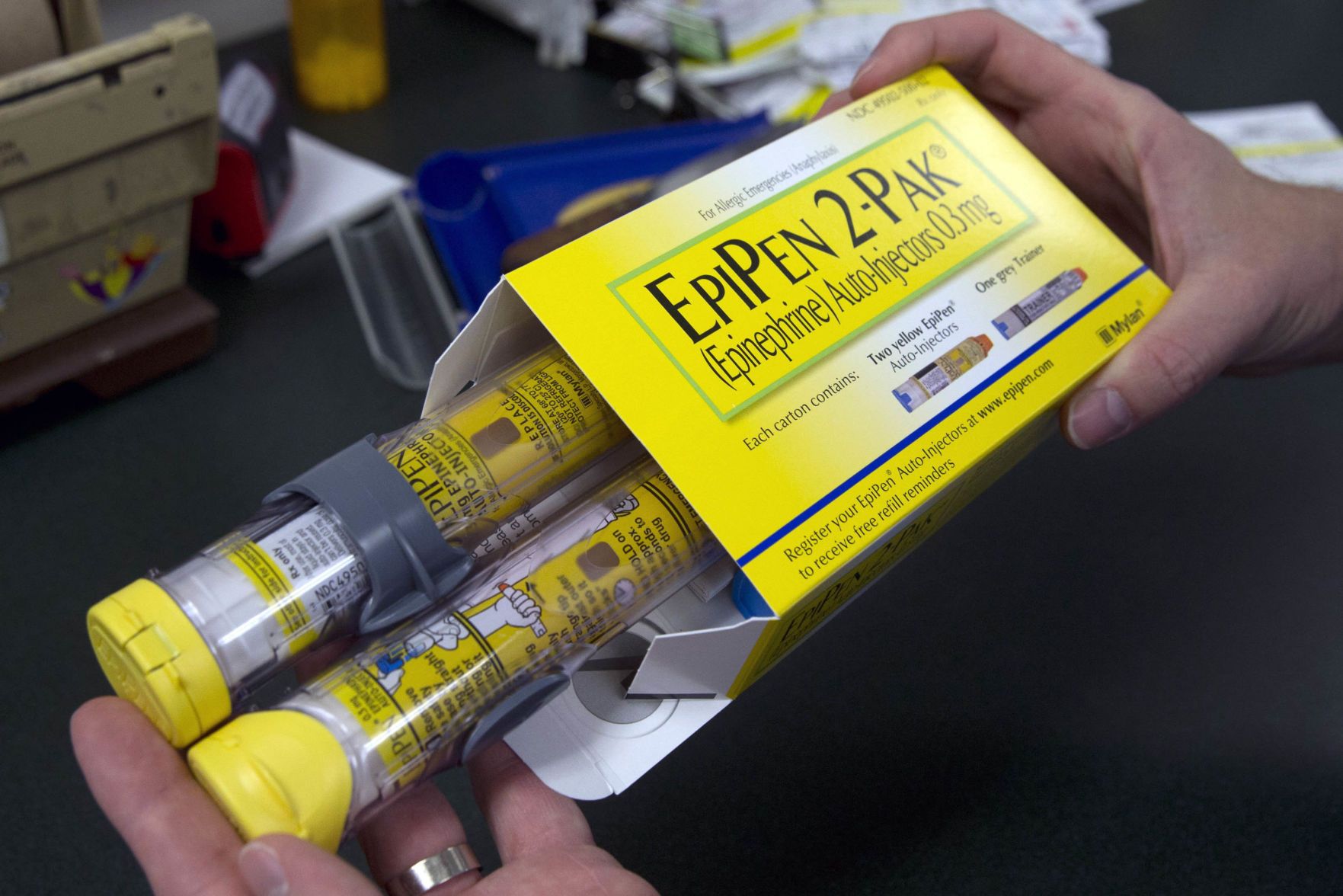10th Circuit confirms Colorado can be sued over EpiPen pricing law

The Denver-based federal appeals court confirmed on Friday that Colorado may be sued for an allegedly unconstitutional 2023 law aimed at capping the price of EpiPens for certain consumers.
House Bill 1002 sought to counter the rising prices of epinephrine auto-injectors, which can save the lives of people undergoing a severe allergic reaction. During the 2023 legislative session, lawmakers heard that, while EpiPens cost around $8 to manufacture, the price for uninsured consumers may balloon to upwards of $690.
In response, the bill contained two key provisions beginning on Jan. 1, 2024. First, the measure capped out-of-pocket costs for insured consumers to $60 for a two-pack of the auto-injectors. Second, it created a program for Colorado residents who do not qualify for Medicare or Medicaid and who also do not have private insurance, imposing the $60 cap for an EpiPen two-pack. In that situation, a pharmacy may charge up to $60, but can then request the manufacturer resupply it with new EpiPens for free. Alternatively, the manufacturer can reimburse the pharmacy for the amount it paid for the EpiPens.
EpiPen manufacturer Teva Pharmaceuticals USA, Inc. alleged the law violated the “takings clause” of the Fifth Amendment, which forbids the government from taking private property “for public use, without just compensation.”
Days before the law was scheduled to take effect, U.S. District Court Judge Daniel D. Domenico turned down the request for a preliminary injunction. He acknowledged the law would require Teva’s property to be taken, but believed it was not appropriate to block the law prior to the actual taking.
Simultaneously, Domenico denied the government’s motion to dismiss the case. Although the 11th Amendment, as interpreted by the U.S. Supreme Court, bars lawsuits for money damages against states for violating federal law, Domenico pointed out Teva was actually seeking to halt the taking of its property — forward-looking relief not prohibited by the U.S. Constitution.

Teva did not appeal Domenico’s denial of the injunction, but the Colorado Attorney General’s Office appealed his conclusion that the lawsuit could proceed against the state.
“The Takings Clause requires compensation and does not authorize injunctions when compensation is available. That simple rule disposes of this case,” wrote the office.
Teva countered that it may be true the company will have to file suit in state court to seek monetary compensation. But because Teva’s federal case sought to halt the taking of its property, the claim was exactly the type the 11th Amendment does not prohibit against a state.
Case: Teva Pharmaceuticals v. Weiser
Decided: September 5, 2025
Jurisdiction: U.S. District Court for Colorado
Ruling: 3-0
Judges: Bobby R. Baldock (author)
Robert E. Bacharach
Joel M. Carson III
A three-judge panel of the U.S. Court of Appeals for the 10th Circuit agreed with Teva.
“Plaintiff alleges an ongoing violation of federal law –– that the affordability program’s reimburse or resupply requirement violates the Fifth Amendment’s Takings Clause. And Plaintiff seeks relief properly characterized as prospective –– injunctive relief enjoining enforcement of the reimburse or resupply requirement,” wrote Senior Judge Bobby R. Baldock in the Sept. 5 order.
Following a Denver7 investigation last year, Attorney General Phil Weiser said his office sent letters to major pharmacy chains advising them to honor the $60 price cap.
“We heard from consumers they are not following the law. That’s not OK,” he said. “They need to follow the law or there will be consequences.”
The case is Teva Pharmaceuticals USA, Inc. v. Weiser et al.











